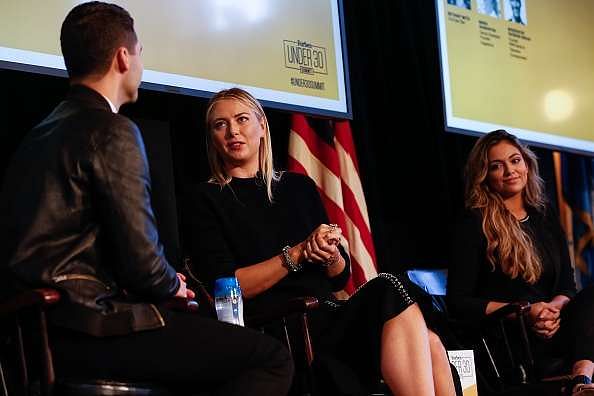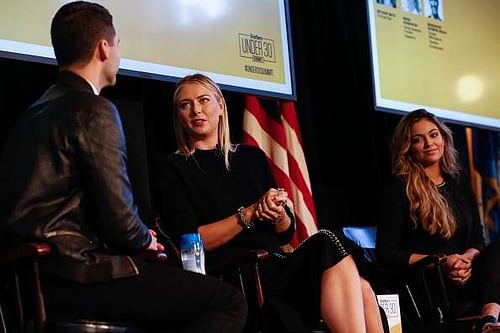
Maria Sharapova to be reinstated as UN Ambassador after end of ban in 2017

Former World No. 1 Maria Sharapova, who is currently serving a doping suspension until April 2017, will be reinstated in her role as a UN Goodwill Ambassador once that suspension ends, it has been revealed in a statement issued by the United Nations.
In the statement, the organization said it was “looking forward to working with her to discuss [her] role at an appropriate date.”
Sharapova was banned earlier this year after it was discovered the Russian had been using meldonium or mildronate, a substance that is prohibited by WADA or the World Anti-Doping Agency for enhancing performance.
Read more: Sharapova banned for two years for meldonium use
Also read: What is meldonium, and how did Sharapova use it?
At the time, the Russian claimed that she had been taking the medication over a ten-year period for an undisclosed heart issue, but was sentenced to a two-year ban for her offences. That ban was later reduced to 15 months, which means Sharapova will be able to return in time for the 2017 clay court season.
Sharapova was a goodwill ambassador with the United Nations Development Programme, which works towards eradicating poverty and inequality, and had been working with the UNDP since 2007.
A significant portion of Sharapova’s work had focused around recovery from the Chernobyl Nuclear Disaster of 1986, when a nuclear reactor exploded in the Ukrainian town, which was part of the erstwhile USSR.
The nuclear fallout from the reaction has continued to affect the residents even 30 years later, with most of the town still completely abandoned. The Sharapov family have a connection to the town, as her parents fled Chernobyl when mother Yelena was pregnant with Maria a year following the disaster.
Sharapova also lost a number of sponsors in the aftermath of the event, among them her biggest sponsor, Nike and watchmakers Tag Heuer; the player also saw her UN contract suspended in the wake of the doping revelations.
Read more: Sharapova loses sponsors as Nike, Tag Heuer drop athlete
The player could have faced a maximum four-year ban, but was awarded two years, which was later reduced to 15 months; the Russian had been taking the substance during the Australian Open, where she lost against eventual runner-up and long-time nemesis Serena Williams in the quarter-finals.
At the time, Sharapova claimed she had not received any of the numerous communications sent by WADA and had known the medication by another name, mildronate.